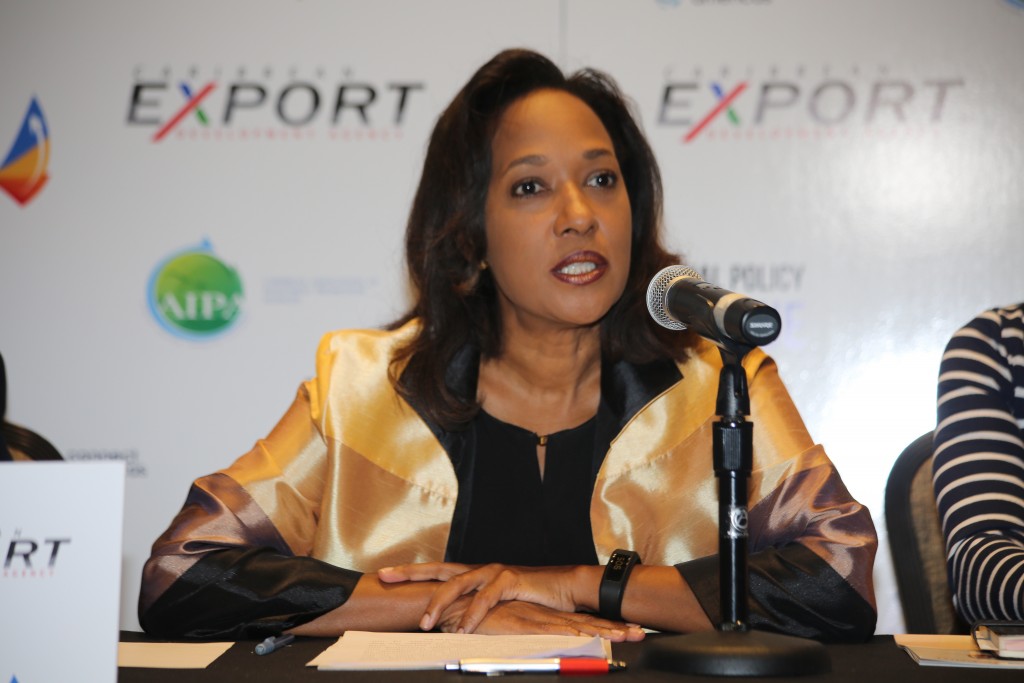The Executive Director of International Trade Centre (ITC), Pamela Coke Hamilton has prescribed a cocktail of measures for Africa to attain Vision 2030 by reimagining industrialisation.
In her keynote speech at the Africa Industrialisation Day on 20 November 2020,the ITC Executive Director highlighted five key strategies that the continent can embrace to achieve the ambitious development trajectory.
She called for a realistic and accurate diagnosis of where the world stands today and alluded to the recent UNCTAD report that starkly reminds of the more than one million deaths attributed to the pandemic, a 4.3% contraction of global GDP in 2020, and more than 130 million people being pushed back into extreme poverty.
Ms Hamilton said surveys and analysis undertaken by the International Trade Centre show that micro, small and medium-sized enterprises are the hardest hit by the economic tsunami brought on by COVID-19 with almost a third fearing permanent closure.
“In Africa where micro, small, and medium enterprises constitute 90% of business and 80% of employment, the picture has been mixed. Paradoxically, Africa’s shorter value chains meant less exposure to the supply chain disruption seen across the world and the quick response of many governments on the continent to the health crisis meant that you were able to avert a continental epidemic.
“But what has been the real impact on the informal economy in Africa? How many families and communities have been ripped back into poverty? What has slower growth and stalled investments in 2020 meant for growth prospects in 20201 and beyond. All of us agencies here today should continue to work together with the African Union to provide that accurate picture of how the pandemic has affected the continent,” Ms Hamilton said.
This will help in developing an appropriate response and recovery strategy for impact bearing in mind that a one-size-fits-all approach will not work and each corner in Africa has its own specificity.
She said the alignment with the African Continental Free Trade Area (AfCFTA) is important. The AfCFTA is a blueprint for facilitating a process of structural transformation. With the aims of boosting intra-African trade to 52.3% and increasing regional income by 7% or $ 450 billion by 2035, the AfCFTA is an insurance policy against future crises. The ITC Executive Director said it is the AfCFTA process that must reimagine industrialization for the continent.
This will mean addressing the digital penetration gap; servicification, the creation of new employment opportunities through entrepreneurship, focusing on the national and continental business ecosystems, and placing a particular accent on building value addition and supporting greater value retention on the continent.
“Made in Africa must also mean ‘Buy in Africa’ and ‘Invest in Africa.`
Third, she said micro, small, and medium enterprises must be at the heart of any continental recovery and industralisation policy.
“And a particular accent should be placed on women and youth-owned and run businesses. Industrialisation must be inclusive. Women and youth-led businesses are more vulnerable to shocks and have been hit harder by COVID-19. ITC research shows that youth-led enterprises reported a high risk of closing. About 26% of youth-led firms said they risked shutting down permanently within three months. This could significantly increase the already high levels of youth unemployment on the continent.”
She added that border closures and restrictions of movement have taken a heavy toll on women, who make up the largest share of informal cross border traders in Africa, representing 70% to 80% in some countries. Ms. Hamilton said dialogue will be important for ensuring that the priorities of this constituency are heard and translated into how the Affrays rolled out next year will be crucial in ensuring ownership and success moving forward.
The ITC has already begun to work with the AU Commission and the AfCFTA Secretariat to support greater linkages between the regional private sector and regional women business associations with policymakers and is currently developing a series of actions to animate with the youth community throughout the continent to spur their engagement on the AfCFTA.
Through its new initiatives with Afreximbank, ITC is piloting a “How to Export” training programme that aims to increase the awareness of the opportunities that engaging in cross-border trade under the AfCFTA provides.
She alluded to the importance of investing in agri-businesses. Ms. Hamilton called for the setting up of regional investment hubs and allowing supply chains to connect across countries on the continent.
“Just take cotton for example. Imagine an industrial plant in one location for cotton spinning and weaving which sources raw materials from across the region. This is what ITC is advocating through the “Route du Cotton” approach with the Cotton countries for example. Or a jam production facility in one country with regional neighbours supplying the fruits.
“Or retaining more of a commodity’s value chain within a country or region like what we have seen in Ethiopia with coffee where ITC has collaborated with coffee value chain operators and leveraged investments into roasting and marketing capabilities ensuring that MSMEs and farmer cooperatives have been supported in product development and the launching of their own coffee brands for the local and international markets.”






